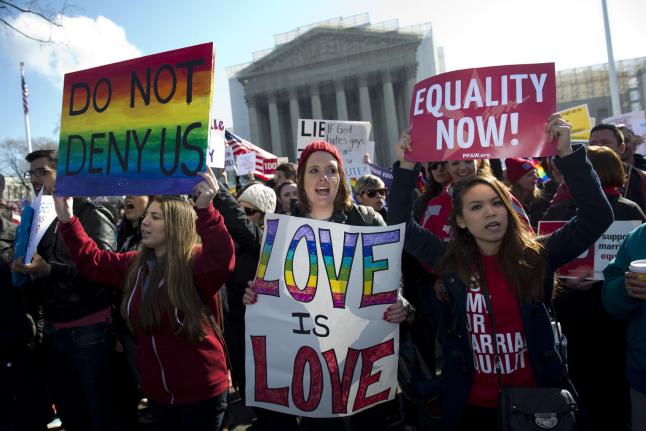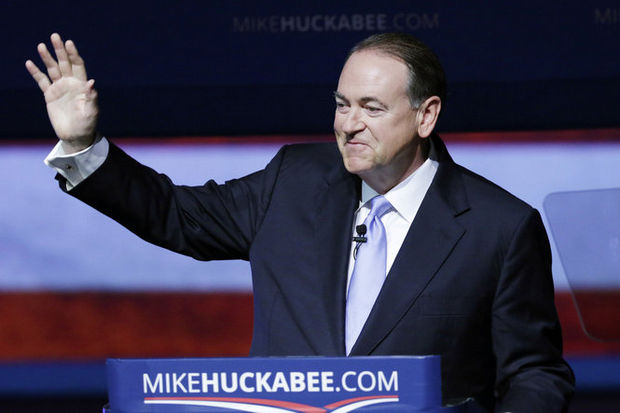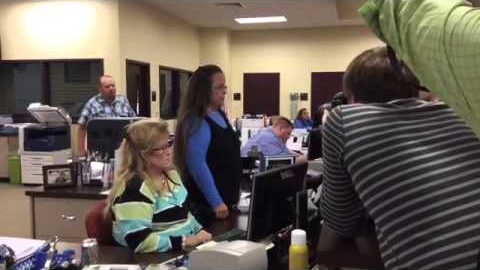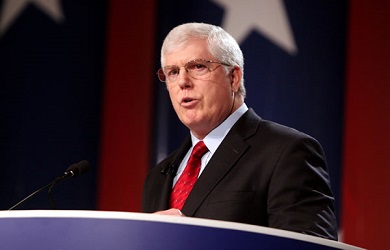Liberty Counsel, the right-wing legal group which has called for civil disobedience and a revolution to resist the Supreme Court’s decision on marriage equality, has been defending a county clerk in Kentucky who was sued for refusing to issue marriage licenses to same-sex couples.
The group’s founder, Mat Staver, who argues that the states and cities should simply ignore the marriage equality ruling, announced today that his group is now filing a lawsuit on behalf of the Kentucky clerk, Kim Davis, against the state’s governor, alleging that his enforcement of the Supreme Court’s decision violates the U.S. Constitution. The suit [PDF] argues that because the clerk opposes same-sex marriage, she should not have to perform her job duties and comply with the state’s marriage laws because doing so “would violate her deeply and sincerely held religious beliefs.”
The group adds that Davis’ belief in divine laws trumps the court’s recent decision: “Before taking office as County Clerk in January 2015, Davis swore an oath to support the constitutions and laws of the United States and the Commonwealth of Kentucky ‘so help me God.’ Davis understood (and understands) this oath to mean that, in upholding the federal and state constitutions and laws, she would not act in contradiction to the moral law of God, natural law, or her sincerely held religious beliefs and convictions.”
By enforcing the marriage equality decision, Liberty Counsel claims, the state is violating the U.S. Constitution’s First and 14th Amendments. The group even alleges that the state is violating Article VI by trying to “impose a religious test as a qualification to hold the office of county clerk.”
1. The Commonwealth of Kentucky, acting through Governor Beshear, has deprived Davis of her religious conscience rights guaranteed by the United States and Kentucky Constitutions and laws, by insisting that Davis issue marriage licenses to same-sex couples contrary to her conscience, based on her sincerely held religious beliefs. Because of Governor Beshear’s open declaration that Davis has no such rights, Governor Beshear has exposed Davis to the Plaintiffs’ underlying lawsuit, in which the Plaintiffs claim a constitutional right to a Kentucky marriage license issued specifically by Davis. Governor Beshear is not only liable to Davis for Plaintiffs’ claims, but is also obligated to effect Kentucky marriage licensing policies that uphold Davis’s rights of religious conscience.
…
8. The Commonwealth of Kentucky has a body of democratically-enacted law memorializing the millennia-old, natural definition of marriage as the union of one man and one woman. In 1998, the Kentucky legislature codified at Ky. Rev. Stat. § 402.005 the natural definition of marriage, previously entrenched in Kentucky common law, that “‘marriage’ refers only to the civil status, condition, or relation of one (1) man and one (1) woman united in law for life, for the discharge to each other and the community of the duties legally incumbent upon those whose association is founded on the distinction of sex.” In 2004, the Kentucky legislature proposed a constitutional amendment, which was subsequently enacted on the approval of seventy-four percent (74%) of the voters, memorializing that “[o]nly a marriage between one man and one woman shall be valid or recognized as a marriage in Kentucky” KY. CONST. § 233A.
…
16. Davis is a professing Christian who is heavily involved in her local church, attending weekly Bible study and worship services there, and who leads a weekly Bible study for women at a local jail. 17. As a Christian, Davis possesses a sincerely held religious belief and conviction, based upon the Bible which she believes to be the Word of God, that “marriage” is exclusively a union between one man and one woman. According to her beliefs, there is no arrangement of people other than one man and one woman that is, or can be called, “marriage.”
18. As county clerk, as a matter of Kentucky law, Davis authorizes, and signifies her authorization and approval by affixing her name to, each and every marriage license issued from her office. But Davis can neither authorize nor approve the “marriage” of a same-sex couple according to her conscience, because even calling the relationship of a same-sex couple “marriage” would violate her deeply and sincerely held religious beliefs. Nor can Davis allow her name to appear as the source of authority and approval for any marriage license issued to a same-sex couple because providing such approval would violate her sincere religious beliefs and convictions.
19. Before taking office as County Clerk in January 2015, Davis swore an oath to support the constitutions and laws of the United States and the Commonwealth of Kentucky “so help me God.” Davis understood (and understands) this oath to mean that, in upholding the federal and state constitutions and laws, she would not act in contradiction to the moral law of God, natural law, or her sincerely held religious beliefs and convictions. Davis also understood (and understands) the constitution and laws she swore to uphold to incorporate the constitutional and other legal protections of all individuals’ rights to live and work according to their consciences, as informed by their sincerely held religious beliefs and convictions, including without limitation such rights she holds in her own individual capacity.
20. Davis’s sincerely held religious belief regarding the definition of “marriage” was perfectly aligned with the prevailing marriage policy in Kentucky at the time she took office, as provided in the Kentucky Constitution, Kentucky statutes, and controlling court decisions, and as effected by the Commonwealth through Governor Beshear and Commissioner Onkst.
…
38. Governor Beshear’s targeted and discriminatory marriage policy pronouncements constitute government-imposed pressure on Davis to act contrary to her religious beliefs, and expose Davis to potential liability if she refuses to compromise her religious beliefs and violate her conscience.
…
59. Davis’s sincerely held religious beliefs prohibit her from issuing marriage licenses to same-sex couples. Davis’s compliance with her religious beliefs is a religious exercise.
…
86. Kentucky’s marriage policies, as effected by Governor Beshear and Commissioner Onkst, violate Davis’s rights secured to her by the Free Exercise and Establishment Clauses of the First Amendment to the United States Constitution and by the Due Process and Equal Protection Clauses of the Fourteenth Amendment to the United States Constitution.
…
99. Kentucky’s marriage policies, as effected by Governor Beshear and Commissioner Onkst, require persons with religious beliefs like those of Davis to renounce such beliefs as a condition to holding the office of county clerk, and thereby impose a religious test as a qualification to hold the office of county clerk.
100. Kentucky’s marriage policies, as effected by Governor Beshear and Commissioner Onkst, violate Davis’s rights secured to her by Article VI of the United States Constitution and the Fourteenth Amendment to the United States Constitution.








